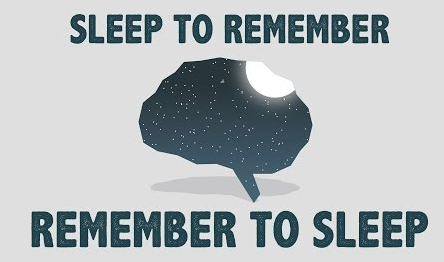(单词翻译:单击)
It's 4 a.m., and the big test is in eight hours, followed by a piano recital.
现在是凌晨四点,八小时之后你有一场重要的考试,接着还有一场钢琴独奏会。
You've been studying and playing for days, but you still don't feel ready for either.
你已经连日学习和苦练钢琴,但你仍觉得你还未准备好。
So, what can you do?
那么你能做些什么呢?
Well, you can drink another cup of coffee and spend the next few hours cramming and practicing,
你可以再喝一杯咖啡,并在仅剩的一点时间里继续奋战,
but believe it or not, you might be better off closing the books, putting away the music, and going to sleep.
但是你也许不相信,如果你关上书本,停止练习并去睡一觉,效果会更好。
Sleep occupies nearly a third of our lives, but many of us give surprisingly little attention and care to it.
睡眠几乎占据了我们生命的三分之一,可令人惊讶的是,许多人并不关心他们的睡眠。
This neglect is often the result of a major misunderstanding.
人们对睡眠的忽视往往是来自于一个很大的误解。
Sleep isn't lost time, or just a way to rest when all our important work is done.
睡觉并不是浪费时间,睡眠也不仅仅是工作后的休息。
Instead, it's a critical function, during which your body balances and regulates its vital systems,
相反,睡眠是一个很关键的过程,睡眠期间,你的身体会对各系统进行调节,
affecting respiration and regulating everything from circulation to growth and immune response.
你的呼吸系统会受到影响,血液循环系统、免疫系统与身体的成长都会受到影响。
That's great, but you can worry about all those things after this test, right?
听起来很棒,但你可以等考完试以后再来担心睡眠,对吧?
Well, not so fast. It turns out that sleep is also crucial for your brain,
先别这么快下结论。原来睡眠对你的大脑也至关重要,
with a fifth of your body's circulatory blood being channeled to it as you drift off.
在你进入梦乡的时候,你身体里五分之一的血液都会流入到你的大脑。
And what goes on in your brain while you sleep is an intensely active period of restructuring that's crucial for how our memory works.
你睡觉的时间正是你的大脑内部重新调整组合的时间,这个阶段对我们的记忆功能十分重要。
At first glance, our ability to remember things doesn't seem very impressive at all.
乍一看,我们的记忆能力并不值得惊叹。
19th century psychologist Herman Ebbinghaus demonstrated that
十九世纪心理学家赫尔曼·艾宾浩斯发现,
we normally forget 40% of new material within the first twenty minutes, a phenomenon known as the forgetting curve.
一般在20分钟内我们会忘记40%的新事物,这个现象被称作“遗忘曲线”。
But this loss can be prevented through memory consolidation,
可是记忆力可以通过对记忆的巩固来提高,
the process by which information is moved from our fleeting short-term memory to our more durable long-term memory.
在这个巩固的过程中,新的事物会从短期记忆移到更稳定的长期记忆。
This consolidation occurs with the help of a major part of the brain, known as the hippocampus.
记忆巩固得益于脑部的一个重要部位,这个部位被称为海马体。
Its role in long-term memory formation was demonstrated in the 1950s by Brenda Milner in her research with a patient known as H.M.
海马体在长期记忆形成中扮演的角色于1950年代被布兰达·米尔内通过她对一位名为H.M.的病人的研究证实。
After having his hippocampus removed, H.M.'s ability to form new short-term memories was damaged,
H.M.的海马体被移除后,他形成新的短期记忆的能力遭到破坏,
but he was able to learn physical tasks through repetition.
但他仍能够通过不断重复学习新的体能任务。
Due to the removal of his hippocampus, H.M.'s ability to form long-term memories was also damaged.
由于海马体的移除,H.M形成长期记忆的能力也被破坏了。
What this case revealed, among other things, was that the hippocampus was specifically involved in the consolidation of long-term declarative memory,
这个例子反映出,海马体在长期陈述性记忆而非程序性记忆巩固的过程中至关重要,
such as the facts and concepts you need to remember for that test,
陈述性记忆包括你考试要记的事实、概念等,
rather than procedural memory, such as the finger movements you need to master for that recital.
程序性记忆包括你钢琴独奏要记住的手指动作。

Milner's findings, along with work by Eric Kandel in the 90's, have given us our current model of how this consolidation process works.
米尔内的发现加上埃里克·坎德尔在90年代的发现给我们提供了这个巩固过程的现有模型。
Sensory data is initially transcribed and temporarily recorded in the neurons as short-term memory.
感官数据会先被暂时转录到短期记忆的神经元上面。
From there, it travels to the hippocampus, which strengthens and enhances the neurons in that cortical area.
从那里再进入到海马体,而海马体再将其皮质区的神经元进行强化。
Thanks to the phenomenon of neuroplasticity, new synaptic buds are formed,
多亏了这一神经可塑性,新的突触芽得以形成
allowing new connections between neurons, and strengthening the neural network where the information will be returned as long-term memory.
并在神经元之间建立新的连接,从而强化相应神经网络并形成长期记忆。
So why do we remember some things and not others?
为什么我们会记住一些而忘掉另一些?
Well, there are a few ways to influence the extent and effectiveness of memory retention.
那是因为有很多东西会影响记忆形成的程度和有效性。
For example, memories that are formed in times of heightened feeling, or even stress,
比如,那些在情感或压力强烈的时候形成的记忆
will be better recorded due to the hippocampus' link with emotion.
会更容易被记录下来因为海马体和情感之间的关联。
But one of the major factors contributing to memory consolidation is, you guessed it, a good night's sleep.
但是一个影响记忆巩固的重要因素是,你已经猜到了,就是一晚好的睡眠。
Sleep is composed of four stages, the deepest of which are known as slow-wave sleep and rapid eye movement.
睡眠有四个阶段组成,最深的就是慢波睡眠和快速眼动睡眠。
EEG machines monitoring people during these stages have shown electrical impulses moving between the brainstem,
脑电图监测结果显示在这些阶段电脉冲在脑干、
hippocampus, thalamus, and cortex, which serve as relay stations of memory formation.
海马体、丘脑和大脑皮层间移动,而这些都是记忆形成的中转站。
And the different stages of sleep have been shown to help consolidate different types of memories.
不同的睡眠阶段有助于巩固不同类型的记忆。
During the non-REM slow-wave sleep, declarative memory is encoded into a temporary store in the anterior part of the hippocampus.
在非快速眼动慢波睡眠阶段,陈述性记忆被暂时放在海马体的前部。
Through a continuing dialogue between the cortex and hippocampus, it is then repeatedly reactivated,
通过大脑皮层和海马体的不断对话,这些记忆反复被激活,
driving its gradual redistribution to long-term storage in the cortex.
使得它们慢慢转到大脑皮层的长期记忆存储区域。
REM sleep, on the other hand, with its similarity to waking brain activity, is associated with the consolidation of procedural memory.
同时,快速眼动睡眠,跟大脑醒着的时候相似,跟程序性记忆的巩固有关。
So based on the studies, going to sleep three hours after memorizing your formulas and one hour after practicing your scales would be the most ideal.
基于这些研究,在你背公式三个小时后,练习钢琴一个小时后进入睡眠是最好的。
So hopefully you can see now that skimping on sleep not only harms your long-term health,
希望你现在已经明白牺牲睡眠不仅对你的长期健康有害,
but actually makes it less likely that you'll retain all that knowledge and practice from the previous night,
而且会影响你记住前晚的知识和练习的能力,
all of which just goes to affirm the wisdom of the phrase, "Sleep on it."
这些都证明了这句话的智慧——先睡一觉再说。
When you think about all the internal restructuring and forming of new connections that occurs while you slumber,
想一下你睡觉的时候,你的大脑在忙着重组、形成新连接等,
you could even say that proper sleep will have you waking up every morning with a new and improved brain, ready to face the challenges ahead.
你甚至可以说,好的睡眠让你第二天有一个全新的更好的大脑,准备迎接新的挑战。


